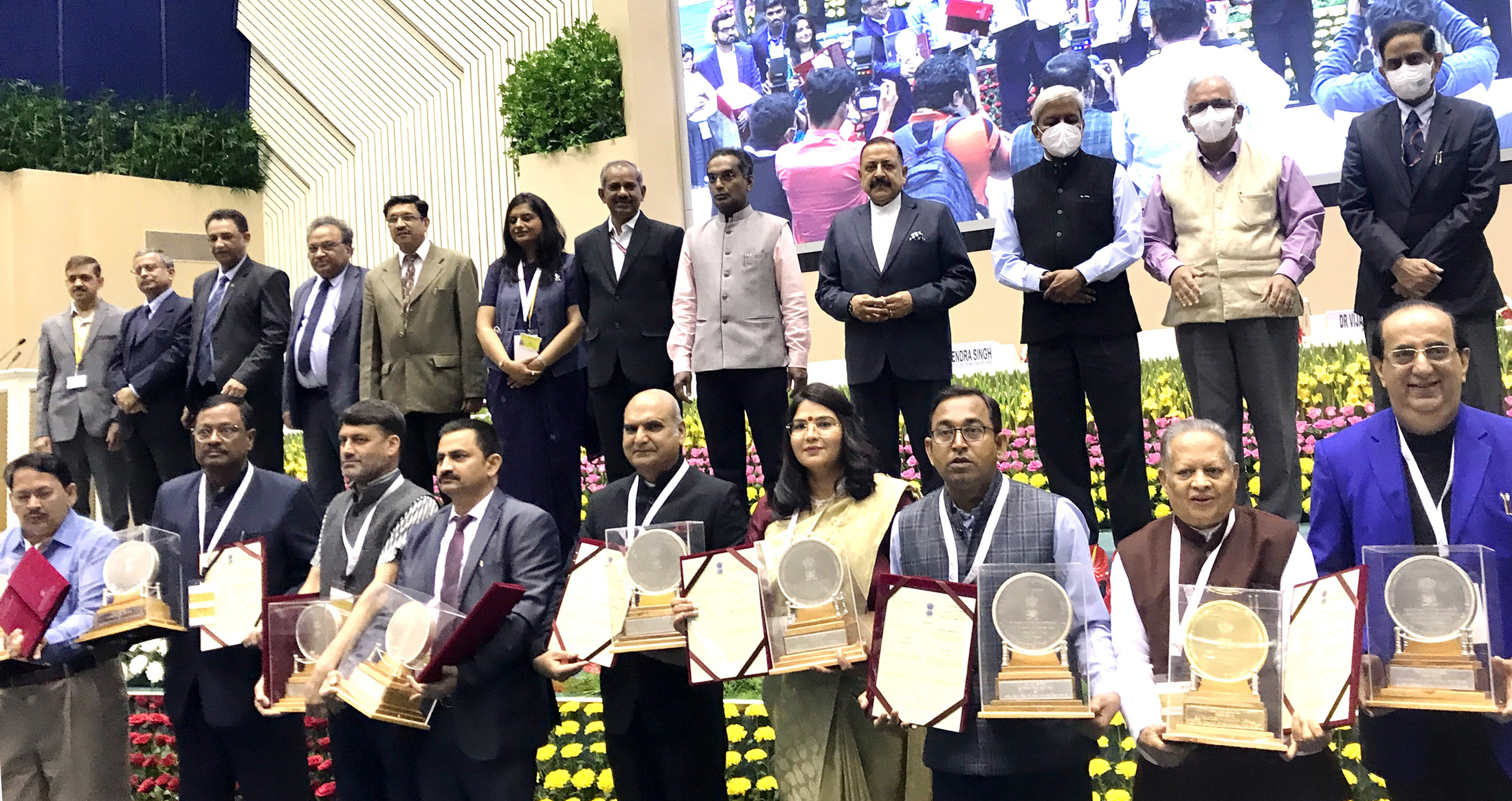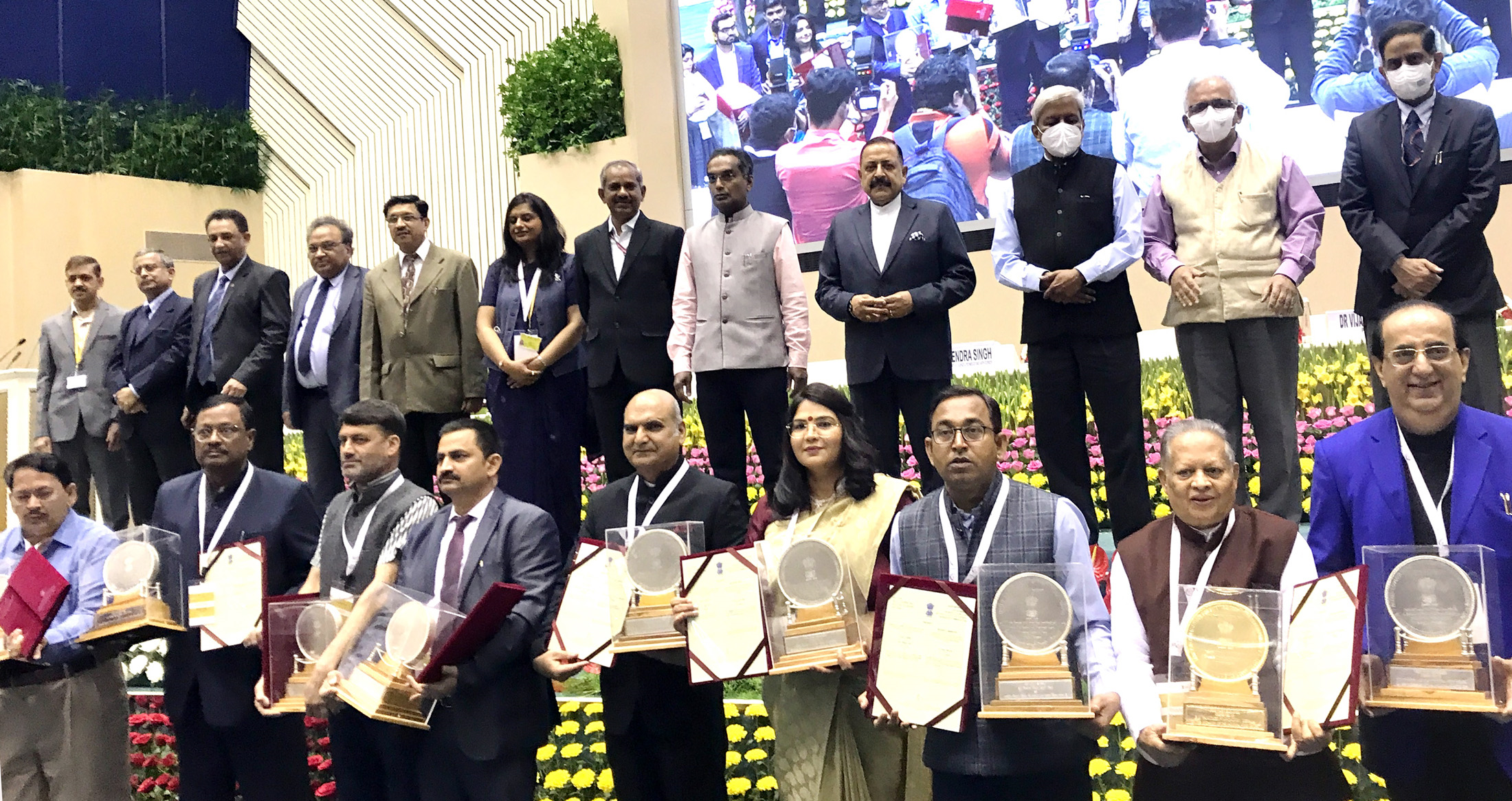Union Minister of State (Independent Charge) Science & Technology; Minister of State (Independent Charge) Earth Sciences; MoS PMO, Personnel, Public Grievances, Pensions, Atomic Energy and Space, Dr Jitendra Singh today said, that mentoring young talent is the best investment for India @2047. He said, young scientists with 25 active years ahead have a crucial role to play in the roadmap for the next 25 years when India celebrates 100 years of independence.
Dr Jitendra Singh was speaking at the concluding function of National Science Week on the National Science Day to mark “Vigyan Sarvatra Pujyate”, a pan-India program to celebrate the essence and magnificence of our scientific achievements.
The Minister said that the spirit of this one week commemoration of “Vigyan Sarvatra Pujyate” is to celebrate and worship science. He said it is an opportunity to introspect and look at how we make up for what we did not have. The goal is also to take the science and scientific thinking to the common man, where he can benefit by imbibing scientific information and innovations and hence develop a deeply scientific mind, he added.

Dr Jitendra Singh underlined Prime Minister, Shri Narendra Modi’s greeting to the scientists on National Science Day, wherein he said, "National Science Day greetings to all scientists and science enthusiasts. Let us reaffirm our commitment towards fulfilling our collective scientific responsibility and leveraging the power of science for human progress”.
Dr Jitendra Singh said, “Vigyan Sarvatra Pujyate '' (Universal Reverence for Science), a nationwide programme that we commenced on February 22, 2022 at 75 locations including Delhi has received wide participation and all-round appreciation. During this National Science Week culminating today, that is national science day was an initiative to reflect the struggle and sacrifice that led to the emergence of modern science in India and also chart pathways for the next 25 years leading to dream of 2047. This event was part of the “AzadiKa Amrit Mahotsav” celebrating the 75th Year of Indian Independence. Hence it is also an occasion to pay homage and showcase the achievements of the 75 glorious years of India’s Independence.
The Minister said, all the science and technology ministries and departments joined hands to carry out this programme across the country under the aegis of the Ministry of Culture, Office of the Principal Scientific Advisor (PSA) and Vigyan Prasar, an organisation under the DST was given the role to execute the programme.
Dr Jitendra Singh said, as we celebrate the 75th year of Indian independence, Azadi Ka Amrit Mahotsav, along with freedom fighters, we also want to recall the contribution of Indian scientists such as Mahendralal Sarkar, JC Bose and PC Ray, who struggled to lay the foundation of modern science in India. He added that today India can boast of rapid and transformational changes in sectors like space, atomic energy, renewable, nano-technology, agriculture, digital and IT sector and life sciences under PM Modi.

Dr Jitendra Singh said, India is one of the very few countries that specifically mention science in its constitution. He said, nurturing scientific temper, humanism and a spirit of inquiry and reform is a constitutional duty of every citizen of India.
Dr Jitendra Singh also presented Science Communication Awards on National Science Day, celebrated every year on 28th February to commemorate the announcement of the discovery of the ‘Raman Effect’ by Sir C.V. Raman, for which he was awarded the Nobel Prize in 1930. DST instituted National Awards for Science Popularisation in 1987 to stimulate, encourage and recognize outstanding efforts in the area of science and technology communication and popularisation as well as inculcate scientific temper among masses. These awards are presented every year on National Science Day. The awards consist of a memento, citation, and award money. (The list of Awardees is enclosed)
Dr Jitendra Singh released three coffee-table books published by Vigyan Prasar. The first one titled “Department of Science & Technology: Past-Present-Future”, accounts for how DST has been shaped since its inception in 1971 and has shaped the scientific tradition and guided innovation in India. It also provides a glimpse into its future scientific goals.
The second titled “75 under 50: Scientists Shaping Today's India” explores personal lives and professional accomplishments of 75 scientists, providing an in-depth look at the diversity surrounding them, such as their differing backgrounds, reasons for becoming scientists, obstacles they faced, and their work in different disciplines.
The third book “75 Founders of Modern Science in India” celebrates the 75th year of India’s Independence, that is, Azadi Ka Amrit Mahotsav, by recalling the outstanding contribution of modern Indian scientists in making India a great civilization in the contemporary world.
A Science cartoon book, entitled Meet, Greet & Tweet with Plasma Toons, written by Dr. B. S. Munjal and Dr. Suryakant Gupta of Institute of Plasma Research, Department of Atomic Energy was also released. It is a novel attempt to attract the young ignited mind of India with the policy of catch them young. This cartoon book gives a wide canvas of maximum number of applications of plasma research for the societal benefit.






























